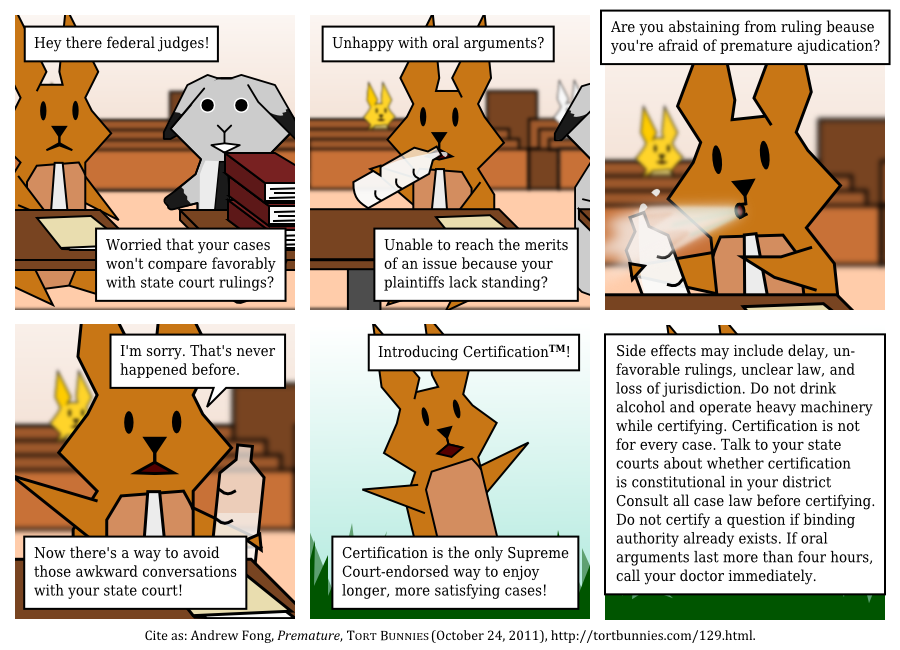 Transcript
Transcript
October 24, 2011. This isn't the first time I've done this.
Anyhow, if you've taken Fed Courts, you can skip this, but for those who haven't, a quick summary of what's going on in today's comic:
A big part of a Federal Courts course is learning when federal courts decline to decide an issue. Some of this is straightforward enough. For example, if a drunken driver crashes into your house, courts will generally decline to hear a case brought by your neighbor on your behalf. We say that he lacks "standing" to sue, because it was you that suffered the injury, not him, and so it should be you that sues instead.
Another reason is that the actual injury you're suing about hasn't happened yet. You can't sue someone who owes you money when the deadline to pay you back hasn't passed yet. Even if you're fairly sure that you're not getting your money back, courts will often decline to decide the issue because it isn't "ripe" yet. You might say that courts don't want to engage in "premature ajudication".
Other reasons for decling to rule on the merits deal the U.S. having two sources of law -- the federal government and individual state governments. What makes the two-sources-of-law really confusing is that the U.S. also has both federal courts and state courts, and that federal courts can decide state law issues while state courts can decide federal law issues.
Because of the potential for conflicting judgments, federal courts will often "abstain" from ruling on certain issues and leave these to state courts. To deal with the complex interaction between federal courts and state law, many states have enacted a certification procedure, which permit federal courts to simply ask state courts what they think, rather than have everyone make their own independent rulings and hope for the best.
On an unrelated note, y'all should check out Bethel School District v. Fraser, 478 U.S. 675 (1986).
Comments